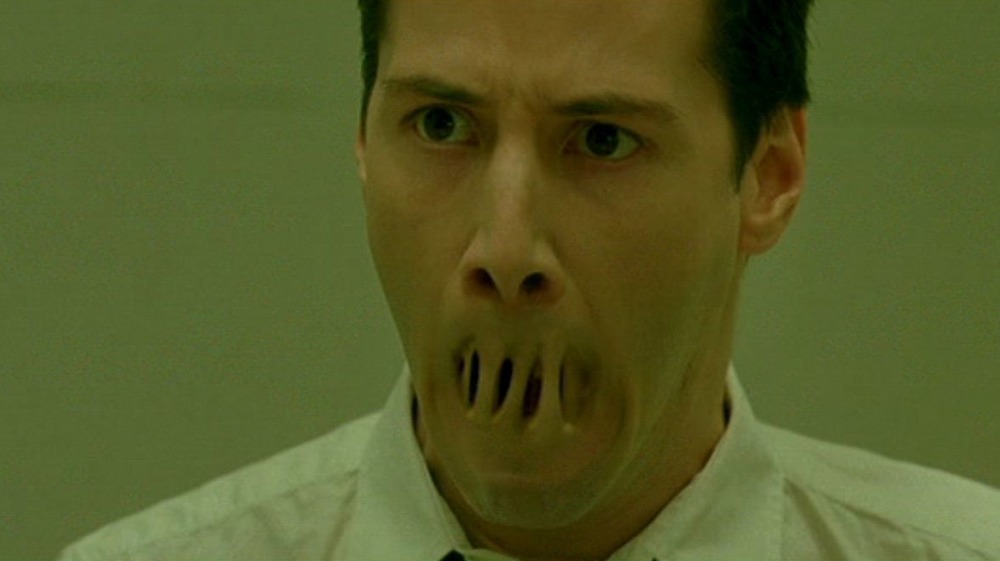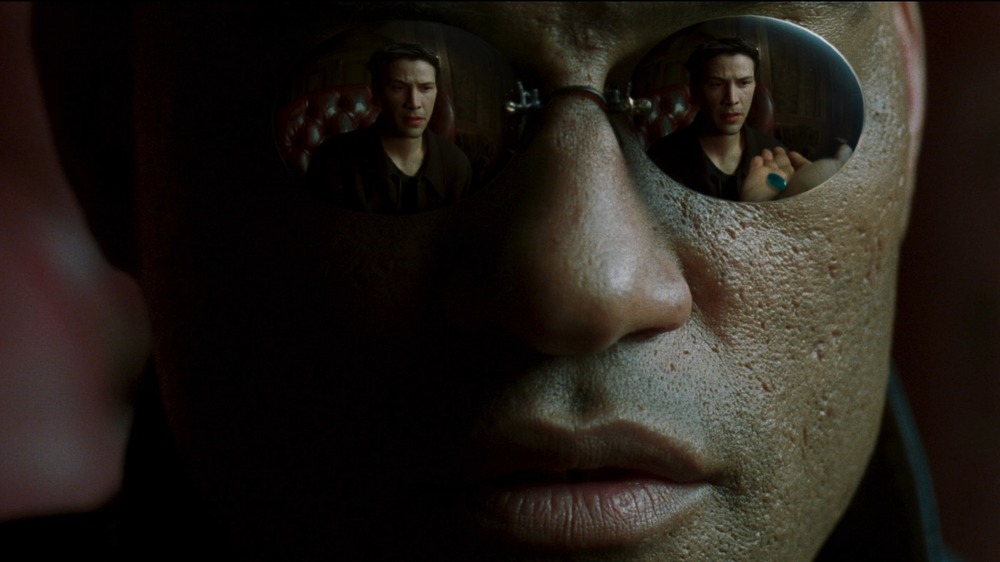How The Matrix Inspired A Mind-Blowing Conspiracy Theory
Depending on whether or not your student loans officer has figured out where you live, it's either an existential worst-case scenario or a deeply comforting thought: We're all part of some vast, unknowable simulation. Morality is an illusion; our shared experience a fabrication. Pour lukewarm soup in your Uber driver's lap. Spend the kids' college fund on dozens of Xbox consoles and then use them to build a fort in your driveway. Update your Tinder profile with nothing but pictures of you in an "FBI: Federal Booty Inspector" t-shirt. It's all just zeroes and ones, and an unfeeling virtual universe will not so much as flinch.
Welcome to simulation theory, the borderline-theistic explanation of the universe with subscribers ranging from Elon Musk to that guy who you're pretty sure just lives in the entryway to your apartment building. It's a thought process with roots in The Matrix and all of the pop culture matrices that came before it — Total Recall, The Twilight Zone, The Electric Ant, Plato's allegory of the cave, and around 40 percent of sophomore philosophy majors' dorm room discussions conducted after one in the morning. And while it's all well and good to conclude that life is probably just, like, super sick VR, there's a small detail that makes simulation theorists difficult to ignore: namely, that from a mathematical perspective, they're probably not wrong.
Simulation theory and the sweet sting of enlightenment
In 2003, an Oxford philosopher named Nick Bostrom pointed out three important facts. First, there aren't a lot of avenues for humanity to advance to the point where we can simulate an entire world. Second, if we ever did get to that point, there would be a very small number of people with an interest in recreating the past in one of those simulations — a small number, but not zero.
So let's say that someone created one of those simulations. Heck, just for fun, let's say two people did it — they each booted up a virtual Earth populated by a world's worth of simulated people. With just the creation of those two programs, they'd have made twice as many virtual people as there would be real people in the real world. Your odds of being a real human being just dropped to 2-to-1. In some hypothetical world where hundreds of historical enthusiasts are playing ultra-complicated, planet-wide versions of The Sims, complete with digital human programs incapable of grasping the nature of their existence, the odds are entirely in favor of you (yes, you!) being one of said Sims, jumping up and down with a toilet in a thought balloon over your head. Figuratively speaking.
There are, of course, variations on the theory. Some people will tell you that we're brains in vats, getting our world piped into our grey matter electronically as a humanitarian kindness in a future that can no longer sustain classic human life. Others would argue that we're all being experimented on by otherworldly forces, made to live out scenarios as a means of predicting our species' behavior. That one Rick and Morty episode posited that this could all be a video game at Blips and Chitz. There are dozens of variations on simulation theory. Pick your favorite and go with it.
It's not like your programming will let you do anything about it.

